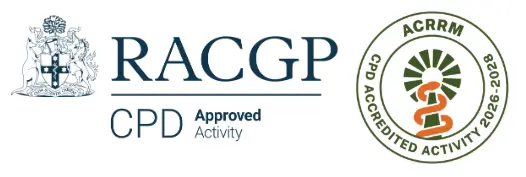
Paediatric Eczema Management: mini audit
Every day around 2.8 million Australians, many of them young children, are directly impacted by the itch, inflammation and discomfort of eczema. Countless more are indirectly affected.1
The impact of eczema on individuals and their families is substantial. Beyond the physical symptoms, eczema also brings psychosocial burdens that reduce well-being and quality of life.1-3
Children with eczema are reported to have a higher likelihood of mood disturbances, inattention and learning difficulties at school than children without eczema.1,4-6 These psychosocial concerns should be addressed and given equal importance to the immediate treatment and maintenance of the skin barrier.
There is also a strong link to other atopic conditions such as asthma, food allergies and allergic rhinitis, a progression of allergic manifestations commonly referred to as the atopic march.7 Eczema is often the first disease to present in the atopic march and some evidence suggests that managing eczema well during infancy may reduce the chance of an infant developing food allergy.8
Effective treatment options are available, yet poor disease control remains common, driven by complex and costly regimens, conflicting advice, myths and misconceptions, particularly regarding topical corticosteroids. These factors have been shown to markedly reduce patient adherence to recommended regimens, resulting in suboptimal outcomes.9-12
This mini-audit activity provides you with the tools to conduct a chart review of your paediatric patients who have been diagnosed/receiving treatment for eczema. During the audit, you will be able to review your current management practices against the recommendations and reflect on what practice changes you can make, and how you will go about this.
This mini audit reflective activity comprises four core components and one optional component:
- Select patient encounter
- Review best practice guidance
- Reflect on practice
- Upload your reflections
- Discuss your reflections with peers (optional)
Funded by the Australian Government through the Quality Use of Diagnostics, Therapeutics and Pathology Program.

For more free Quality Use of Medicines education, check out QHUB on Medcast
This course is formally accredited with the RACGP and ACRRM.
RACGP Activity ID: 842303
ACRRM Activity ID: 40039

Mini-audit
Educational Activities: 1 hours
Measuring Outcomes: 2.5 hours
Areas Of Interest: Dermatology, Paediatrics
Medical Practitioners
Or follow us on social media
